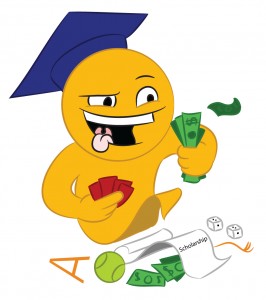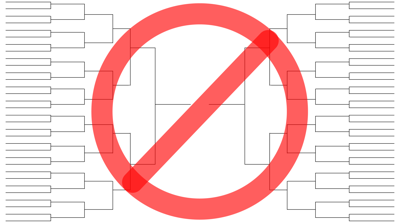Ncaa Athlete Gambling Rules

College athletes are more likely to gamble than non‐athletes (NCAA, 2004), and about twice as likely to be person with a gambling problems (Rocket, Beason & Gilbert, 2002) Dangers of Student Athlete Betting. Athletic and academic failure; Crime; Relationship problems; Alcohol and substance abuse; Debt; Suicide; NCAA Gambling Rules for Student. The NCAA announced its proposed plan for how student athletes will be able to make money off the use of their name, image and likeness on Friday — something that will be allowed for the first time. Sports Wagering NCAA rules prohibit participation in sports wagering activities and from providing information to individuals involved in or associated with any type of sports wagering activities concerning intercollegiate, amateur or professional athletics competition.
NCAA athletes, coaches, and athletic staff members are prohibited from participating in ANY sports wagering activity, AND are prohibited from providing information to individuals involved in any gambling activity (such as telling a friend or classmate that a point guard or pitcher is injured and won’t be completely healthy in an upcoming game).
Ncaa Rules For Student Athletes
The NCAA defines a “wager” as a person agreeing to give up an item of value (entry fee, a shirt, a dinner) in exchange for the opportunity to receive another item of value, so even a bet over a meal or a t-shirt would be a violation of NCAA gambling legislation.
With the NCAA “Final Four” tournament bracket being revealed on Selection Sunday, athletes may be tempted to participate in a “pool” to fill out their tournament bracket.
Ncaa Gambling Policy
This is only possible
if they do so for bragging rights alone,
and no “item of value” is involved.
In fact, I recall a few years ago when a college golfer was suspended because he participated in a “pool” with his father and his father’s golfing buddies. When the athlete’s father posted on his Facebook page that his son had won the pool, athletic administrators at his school learned of the post, and the athlete was suspended.
Also, just within the last two weeks, five University of Richmond baseball players were suspended for their involvement in a fantasy football league. They are ineligible for competition until the NCAA reviews and completes the eligibility reinstatement process.
If you have questions regarding NCAA rules on gambling and how they apply to student-athletes, contact us at 913-766-1235 or send an email to rick@informedathlete.com
Wagering on college sports is not a new concept, but there has been an exponential growth in the number of sports-betting cases being seen by the NCAA. Student athletes see betting on sports an opportunity to earn some extra money, especially if they are struggling with finances and paying for school. However, making sports wagers is against the NCAA rules and against the law.
You Can Get Suspended
In a recent event at Auburn University, Varez Ward, one of the men’s basketball team members, has become the subject of a point-shaving probe. A Tiger teammate of Ward brought his concern to Head Coach Tony Barbee, who then alerted authorities and the NCAA. Ward has been suspended from the team indefinitely and has basically ruined his chances to play as a college or professional athlete.

March Madness, the NCAA’s collegiate men’s basketball tournament, is one of the largest sports-betting events, following the Super Bowl and college football. It is estimated that a couple of billion dollars is wagered illegally on March Madness every year, many of which are through office pools and Internet gambling.
The NCAA considers a sports wager as “putting something at risk—such as an entry fee or a wager—in return for the opportunity to win something.” Making a bet may seem like a harmless amusement, but student athletes risk their eligibility when they engage in sports betting in addition to breaking the law.


NCAA Rules on Sports Betting
The NCAA has two basic rules on sports betting: (1) you may not place a bet of any sort on a college or professional sports event where the NCAA conducts a championship and (2) you may not give information to anyone who places bets on college or professional sports. The possible consequences for any of these actions include removal from the team, expulsion from the school, financial ruin, ban from professional sports, career instability, and possible jail time. Varez Ward will be learning this lesson for years to come.
The NCAA is against all forms of sports betting, both legal and illegal. It has established rules that ban employees of athletic departments, the NCAA national office, and student athletes from gambling on sports events, including intercollegiate, amateur, and professional sports. The NCAA stands on the belief that sports should be seen as activities to watch or participate in, not to be used to win money.
The aim of the ban on sports betting is to protect student athletes and to promote their safety as they participate in their sport. The integrity of the game ends up at stake when people who wager large amounts of money on a game try to influence the outcome in their favor. Basketball players may be approached by people with offers of large amounts of money if they help affect the results in a particular game. Many players see this as an opportunity for a quick payout, but many times, they are manipulated into affecting more and more games with the threat of being snitched on to the coach or the NCAA.
In an attempt to protect these players, the NCAA enforces these rules to ensure student athletes understand the dangers and consequences on wagering in sports. The NCAA developed the website Don’tBetOnIt.org to help educate the students and the public on the dangers of sports wagering. This website offers information and tips on avoiding sports bets, especially involving the March Madness tournament. The website seems to have been helping according to recent research. Since 2004, a decrease in frequent (once a month or more) sports wagering and wager-related behaviors from Division I men’s basketball and football players was found.
There is no way to completely control sports wagering, especially on a huge sports event like March Madness, but the NCAA is working hard to educate athletes and to enforce their rules when they are broken. They stand by their continuing effort to protect their athletes and the integrity of college athletics, even with opponents hindering their efforts.
If you have any questions or comments, come find us on Facebook, Twitter, or Google+.



